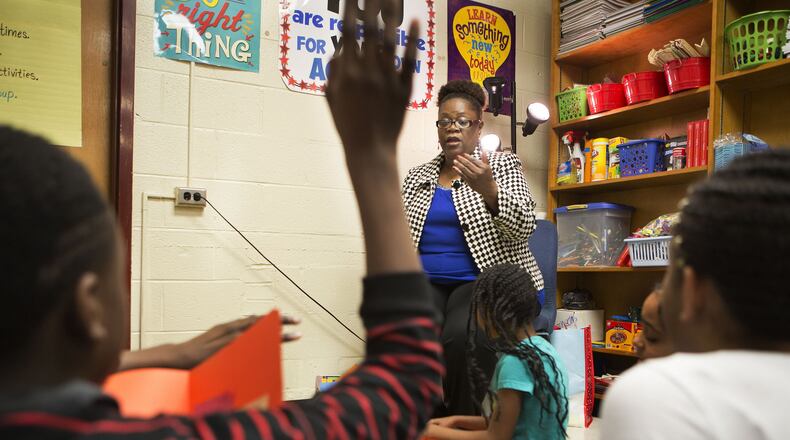Flat Shoals Elementary in Atlanta and other schools packed with poor students highlight a challenge for teachers as poverty rises outside school doors: how to provide extras services that can put the poorest students on a stable footing so they can learn.
It’s tough to teach kids who are hungry or have just stepped out of a chaotic home.
It’s a foreign problem for middle class schools, but politicians across Georgia will likely have to grapple with it when the General Assembly starts Jan. 9. Gov. Nathan Deal is expected to propose a sweeping overhaul of the state’s decades-old school funding formula, with differing implications for schools based on the number of low-income households they serve.
You can check out your local schools, including test results, faculty, school climate and other key facts in the AJC’s Ultimate Atlanta School Guide.
Experts say poverty can lead to disciplinary disruptions that delay learning for a child or an entire classroom. They say this is one of the many explanations for the correlation between poor households and poor academic results .Supportive services can help: researchers at the University of Georgia have found through brain scans that impoverished children whose families received them grew into adults with “greater volumes” in regions of the brain that are tied to memory, learning and coping with stress.
The Atlanta Journal-Constitution takes a look at this looming problems for schools and the problems Georgia legislators need to fix to help children across the state.
The Atlanta Journal-Constitution is the only news source that gives you the depth of reporting you need to make the decisions you have to make.



